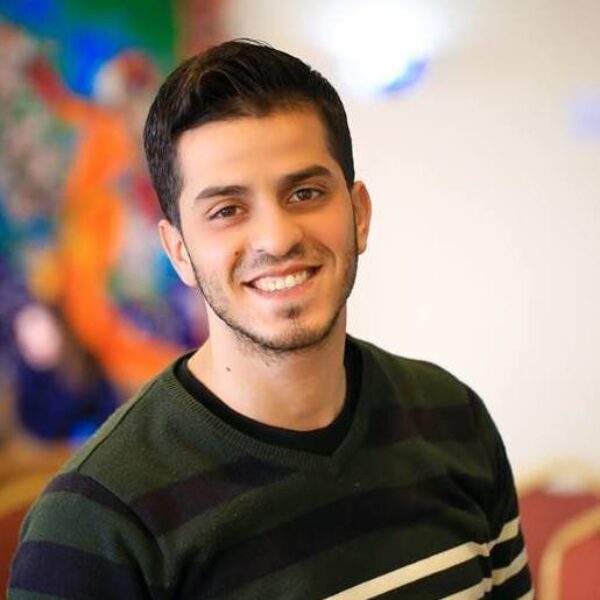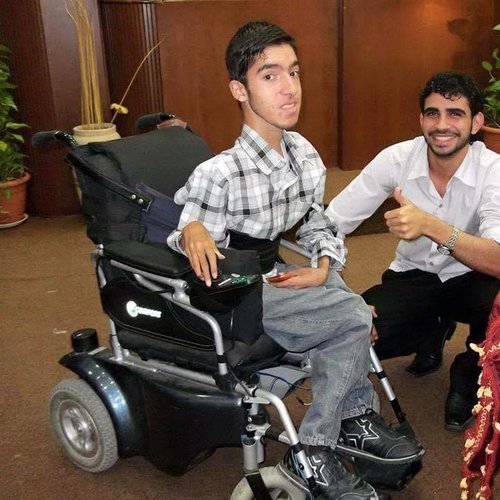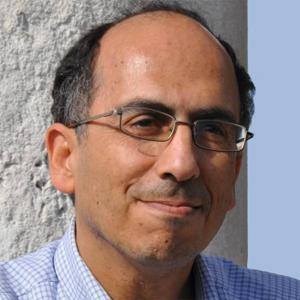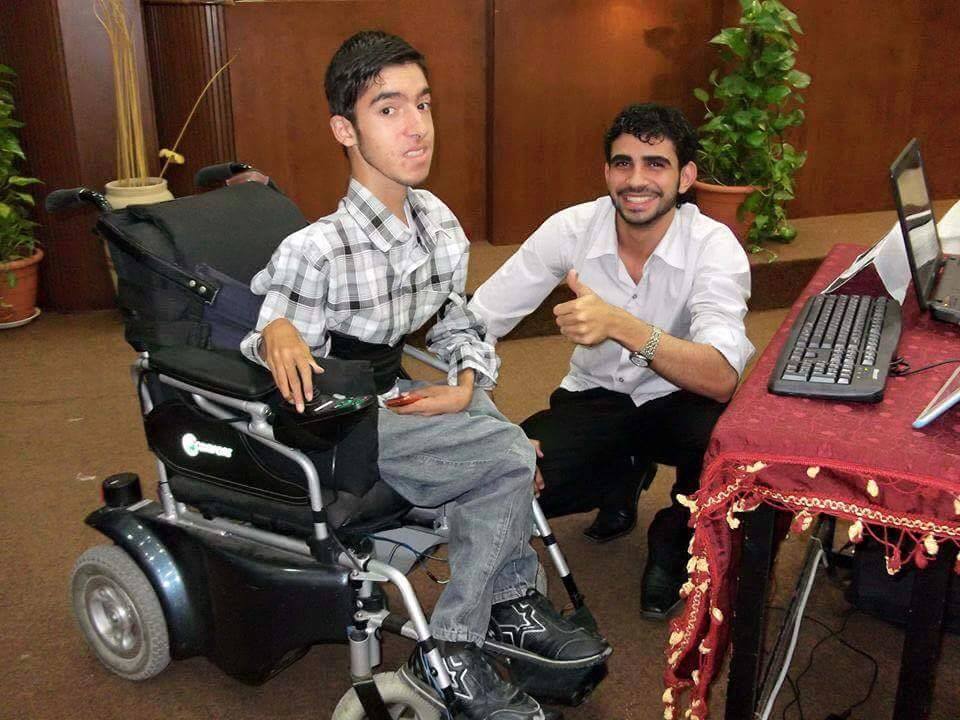
In early 1995, Professor Hedar Anan returned to Gaza after nearly 30 years of study and work outside. Later in the year, his first son, 7-year-old Saleem, began experiencing difficulty when climbing stairs, followed by trouble walking. His family already had suspected he was not developing at a normal pace, but they weren't sure of the cause. When the boy started to exhibit more obvious physical delays compared to his peers, they began worrying. His brother Ameer, who was only 4 years old at the time, appeared normal.
Due to the weak health system in Gaza, Prof. Anan spent two years travelling to and from Egypt with Saleem, looking for an accurate diagnosis and treatment for his child. Finally, Saleem was diagnosed with the degenerative muscle disease known as Duchenne muscular dystrophy. It is a progressive disease leading to various forms of disability and eventually to respiratory failure and death. The family was told by specialists that this condition has a genetic basis that is “expressed” only in males at a certain age, so they knew that Ameer had the same disease as his older brother. "My life was changed completely after that," Prof. Anan says.
Saleem's condition deteriorated gradually over the following months and years. When he lost his ability to walk, his brother Ameer was still in the first stages of the disease. One day, Saleem returned home from school with his driver but Ameer refused to accompany him. Finally, hours later, Ameer came home too. "He looked terrible," his father recalls. "He was resisting the idea of having the same disease as his brother." Ameer had walked all the way back from school to their house, which is one kilometer away. He tried to convince himself that he didn't have the disease, or that if he truly did, he would not let it defeat him. He was just 7 years old at the time.
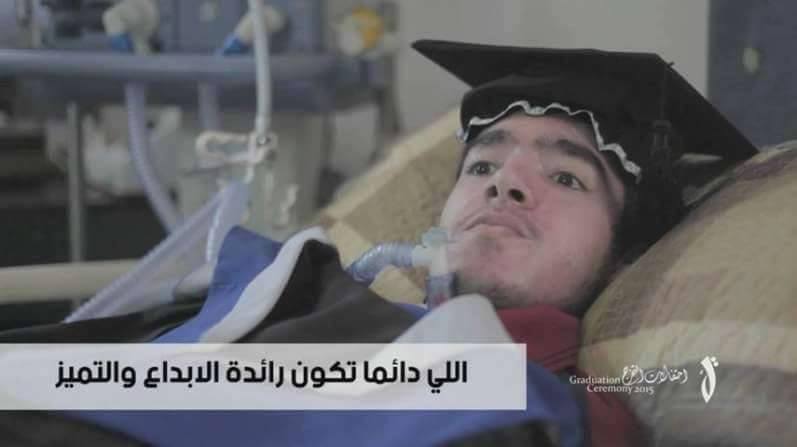
Their parents knew the disease would prevent their children from living normal lives. The challenge for Ameer was trying to stay independent. He decided to live his life normally like everyone else. He decided to never lose hope and to refuse to give up. He started this fight by saying NO to the wheelchair until he was completely unable to walk and had no other choice. Ameer also asked his father to make a special spoon for him to use when eating. He refused to be fed by others. It was difficult, but his will was stronger.
As the disease progressed, his arms became weaker and he couldn't do even simple activities. His laptop was his gateway to the world. Ameer used to write and make new friends through social media. He was well known for his voracious reading and love for writing poetry. He was one of the most active members of a well-known reading club called Diwan Gaza, and that is where I met him first.
Ameer believed disability is a disability of the mind, not the body, and spent all of his life trying to prove it. Everyone who met him was convinced that Ameer was capable of anything.
Gaza doesn't provide special facilities for people with such disabilities. However, his parents tried their best to make life easier for him. For example, his father modified one of the stairways in his son's primary school, so that Ameer was able to go to his classes. Later, his parents searched everywhere for an electric wheelchair. Prof. Anan also worked with Ameer to transform his car into a suitable vehicle for wheelchair transport, a first in Gaza.
Meanwhile, Saleem, despite being more accepting of his condition, also tried to live his life as normally as possible. He started his university education, but couldn't complete it because of his deteriorating health. He died when he was just 19 years old, leaving behind his brother Ameer to continue the fight.
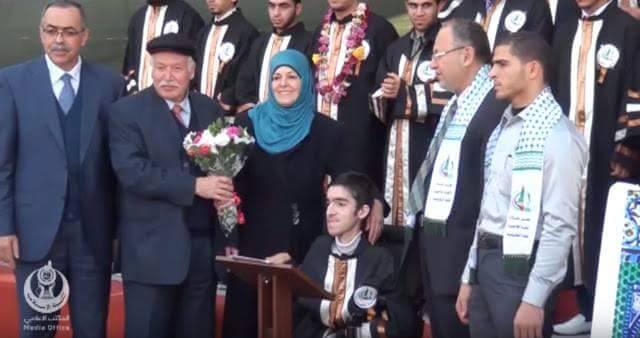
When Ameer was admitted to the ICU on more than one occasion, suffering from a chest infection and difficulty breathing, an endotracheal tube was inserted and he lost his voice temporarily. Even then, he was a positive patient who searched the Internet for a special device that would allow him to speak; he found one in the UK. His father also made a special table so Ameer could use his laptop and read his books even in the ICU.
Eventually, Ameer earned a college diploma in multimedia. He scored the highest grades among all of his classmates, and was honored by the college president at his house and later in front of the students and media. Ameer was the first in the Gaza Strip to develop the idea of a 3D map for navigating the city. He worked on this project until the last days in his life. He also dreamed of founding an association for people suffering from disabilities and submited a proposal to the Ministry of Transportation for a project that would help disabled people move around Gaza City.
Then, on one dark night, on the 16th of September, Ameer died. He left a message for us: "I lived, my friends. I suffered but I succeeded. I wasn't disabled. I defeated my disease. And it's now up to you to defeat your own diseases."
Ameer touched so many lives, and mine was one of them. People in Gaza called him “the Palestinian Steven Hawking.” His life was a story of everything good and strong, and I titled this tribute after the movie that documented the story of Steven Hawking, “The Story of Everything.”

